2023 was a year that found the film industry amid a massive shake-up. Where it had been dominated by IPs and safe family fare for over a decade, now the properties that had once been sure things struggled to find an audience, and the upcoming awards season features some unlikely contenders. Outcomes were unpredictable: reviving the Evil Dead franchise for the second time in a decade proved wise, but bringing back The Exorcist elicited a collective shrug. While it seemed like comic book movies were the only thing guaranteed to fill theater seats, we’ve finally reached an exhaustion point, with both DC and Marvel quickly sputtering out. Nothing is certain anymore.
It doesn’t seem that anyone knows what to do with movies in a post-pandemic market. The merging of Warner Brothers and Discovery, with David Zaslav named as CEO, marked a sobering turning point in how studios viewed films, as “content” to be unceremoniously dumped onto a streaming service without so much as a whiff of promotion. Even then, virtually every streaming service significantly increased their monthly prices in 2023, while thinning out their content and providing far less bang for the viewer’s buck. The Writer’s Guild and SAG-AFTRA strikes revealed studio heads’ stunning disrespect for both writers and actors, as illustrated in their refusal to pay them what they’re worth, and the stated desire to begin relying on artificial intelligence, both to churn out scripts, and, incredibly, to generate background actors, rather than paying actual human beings.
But the creatives pushed back, holding their ground for months until their demands were (mostly) met. They also pushed back in making some of the most creative, unexpected movies we’ve seen in a long time. Some crossed genres, such as Ari Aster’s Beau is Afraid merging comedy with surreal horror, while others, like Martin Scorsese’s long-awaited Killers of the Flower Moon, showed a master at the top of their game. Then, there were the events that no one saw coming, like the dual release of Greta Gerwig’s Barbie and Christopher Nolan’s Oppenheimer turning into a delightful viral event. Studios may be dying, but art is hanging in there, and these are but a few of our favorites from a wild and unpredictable year. [Gena Radcliffe, Film Editor]
Honorable Mentions: Fallen Leaves, Kokomo City, Monster, The Taste of Things, John Wick: Chapter 4, Passages, A Thousand and One, All Dirt Roads Taste of Salt, Judy Blume Forever, You Were My First Boyfriend, Palm Trees & Power Lines, Bottoms, BlackBerry, Joy Ride, Mission: Impossible — Dead Reckoning Part One, The Royal Hotel, Sanctuary, Showing Up, Sisu, You Hurt My Feelings
All of Us Strangers
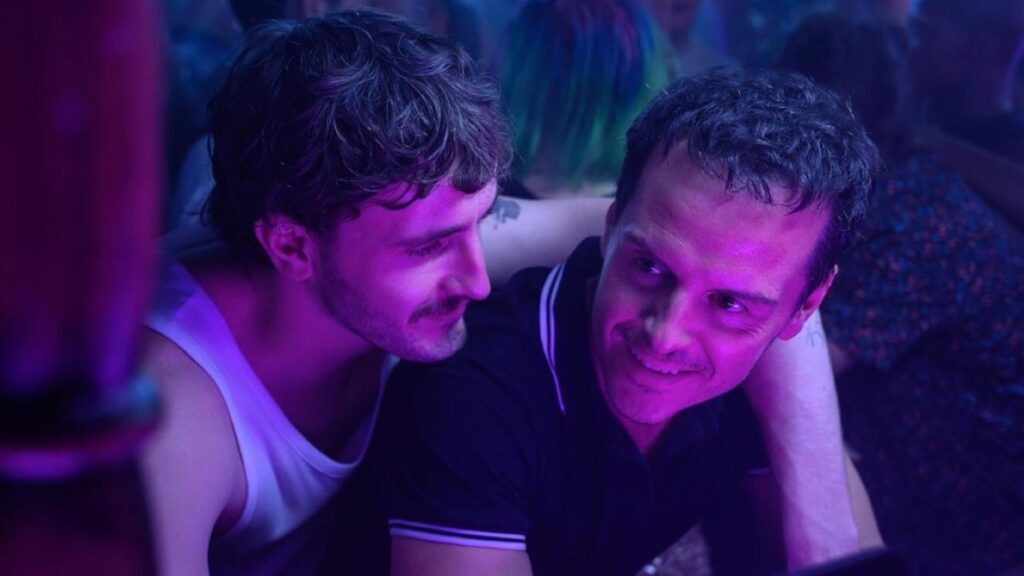
Andrew Haigh’s latest feels a bit like a spiritual (no pun intended) sequel to his remarkable 2011 film Weekend, charting queer love through the lens of loss and grief. There are two sets of connections here, channeled through a beautiful, vulnerable Andrew Scott: First, the furtive whisps of new love between him and a young neighbor (Paul Mescal, similarly fragile and heartbreaking), then the magically-rekindled lives of his late parents (Claire Foy and Jaime Bell), who died thirty years prior and left a gaping hole of understanding in the lonely writer’s life. Haigh’s dream logic invites us to ask ourselves what we would do if we had the chance to say the things we never got the chance to — for queer people, especially, the opportunity to come out to parents who died before you could. All four leads are phenomenal here, mining incredible pathos and warmth from a conceit that’s tear-jerking before anyone utters a word. [Clint Worthington, editor-in-chief]
American Fiction
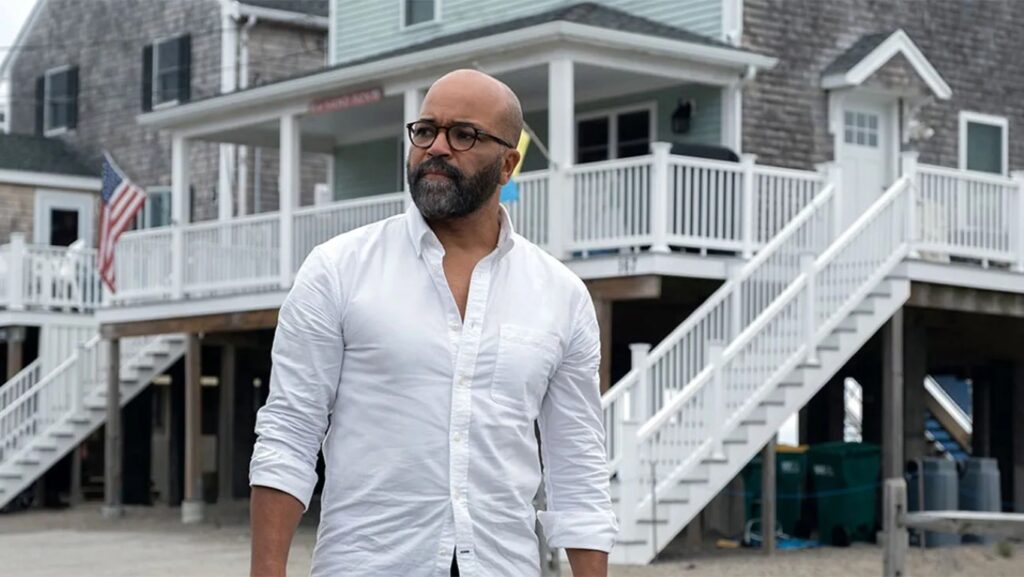
Cord Jefferson lists American Fiction’s satirical elements right on the can and delivers. It serves laughs, both full-bodied guffaws and uncomfortable giggles of self-recognition, from start to finish. But the plot description doesn’t hint at how humanistic the film is: Jeffrey Wright has been so good for so long it’s hard to declare him at his best here because, well, when isn’t he? Still, his performance as writer Thelonious Ellison (Monk to nearly everyone,) demands notice. Wright clearly loves the character, but isn’t afraid to reveal his ugliness to the audience. Everyone he shares scenes with also brings their A-game, including Tracee Ellis Ross, Sterling K. Brown, John Ortiz, and the too-rarely-seen Erika Alexander. American Fiction also proves to be the rare work with a clearly defined point of view that’s unafraid to poke holes in its own argument, particularly in a scene where Ellison goes toe-to-toe with fellow writer Sintara Golden, a fellow writer played with tremendous presence by Issa Rae. [Tim Stevens, TV Editor]
Anatomy of a Fall
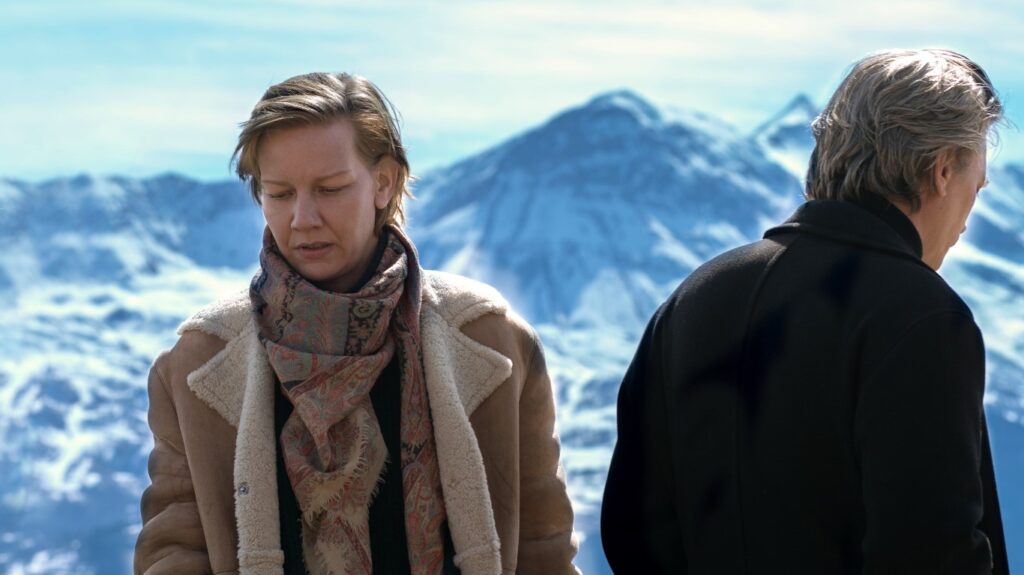
The courtroom drama is a well-worn genre; Justine Triet’s Anatomy of a Fall complicates it in ways that feel novel and dig deep into the core of its character’s concerns. Sandra Hüller (in far from her only appearance on this list) turns in thorny, complicated work as a novelist sorting through the rubble of a crumbling marriage — one that gets a massive spotlight shone on it when her husband falls to his death shortly after a squabble in their remote home in the French Alps. Don’t let its length fool you; it’s riveting from start to finish, both in its probing study of a family in tatters and the fuzzy nature of truth. [CW]
Are You There, God? It’s Me, Margaret
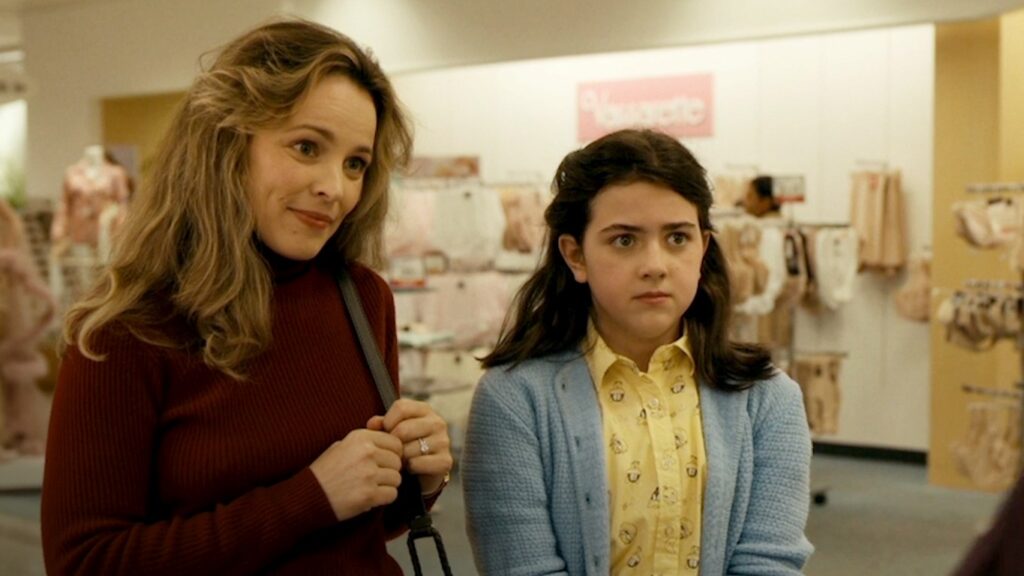
As an adaptation, Are You There, God? It’s Me, Margaret. proves faithful to source material and to the period (no pun intended) setting while making subtle changes that make it resonate with the present. The biggest of these is giving protagonist Margaret’s (Abby Ryder Fortson) mom, Barbara (Rachel McAdams), a more significant and complex presence in the story. McAdams rises to the occasion, taking that slightly bigger piece of real estate and turning in a thoughtful, bittersweet depiction of someone figuring out the next version of themselves. However, Fortson is the revelation of the film. Hers is a child performance that feels neither bratty nor sainted. There is no sense of artifice and only the kind of self-consciousness that sinks into all our bones during our early adolescence. Fortson’s Margaret is a girl who came of age about two decades before I did, but she taps a universality that makes her easy to understand and even easier to relate to. [TS]
Asteroid City
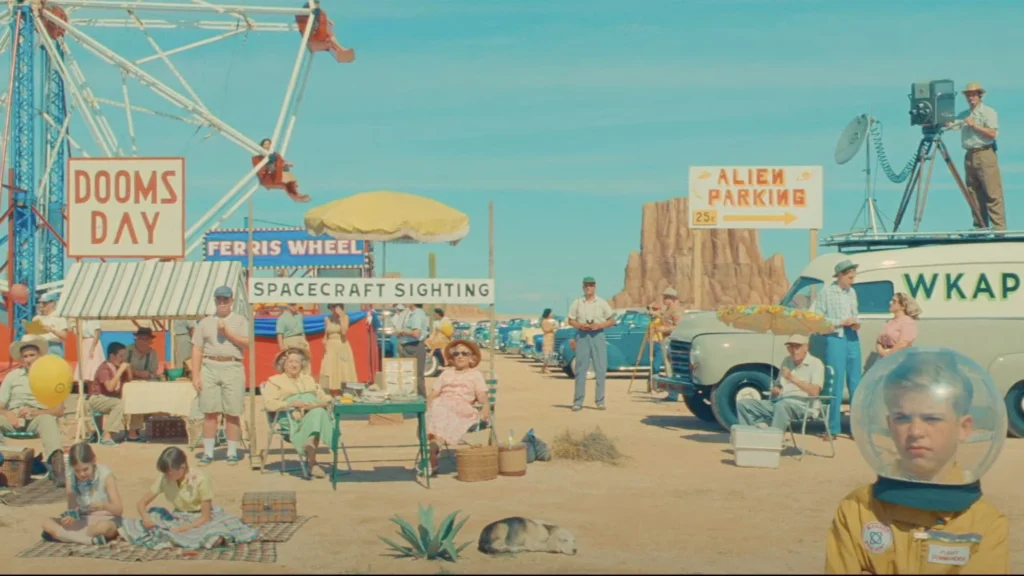
While still very much a Wes Anderson movie, with production design that seems to have been done with a magnifying glass and tweezers, Asteroid City is the first to feel like it’s looking inward, both at Anderson’s creative process, and how he feels about the criticism his work receives. A tiny desert town that was once the site of an asteroid crash hosts a junior scientist convention, tourists, and a collection of other random passersby who are forced to quarantine after an alien encounter, but that’s merely a story inside a bigger, more emotionally resonant story, featuring Jason Schwartzman and Scarlett Johansson as a photographer and actress attracted to each other’s impassive, elliptical personalities. If you’re already in the anti-Anderson camp, this won’t win you over, but if you are, it’s one of his best. [GR]
Barbie
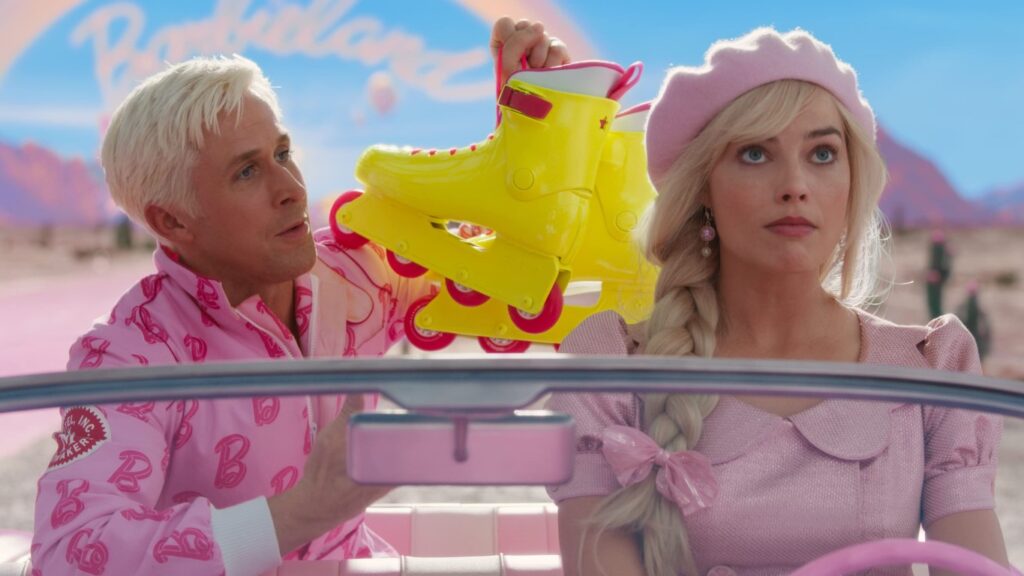
Barbie is kind of a miracle. There’s simply no way that a movie (a) based on a toy, and (b) hyped for months before its release could actually turn out to be good, and yet not only was it good, it was delightful. Greta Gerwig (who co-wrote the script with partner Noah Baumbach) directed a film that not only looked incredible, but boasted a game, enthusiastic cast, and a script that managed to juggle both good-hearted humor and gentle sentimentality. Hollywood will almost certainly take the wrong lesson from it, and proceed to churn out more movies based on toys, to ever-diminishing results, but at least we can keep returning to Barbie as an example of how it’s possible to take something that could have been a cheap, soulless cash grab and give it heart. [GR]
Beau Is Afraid
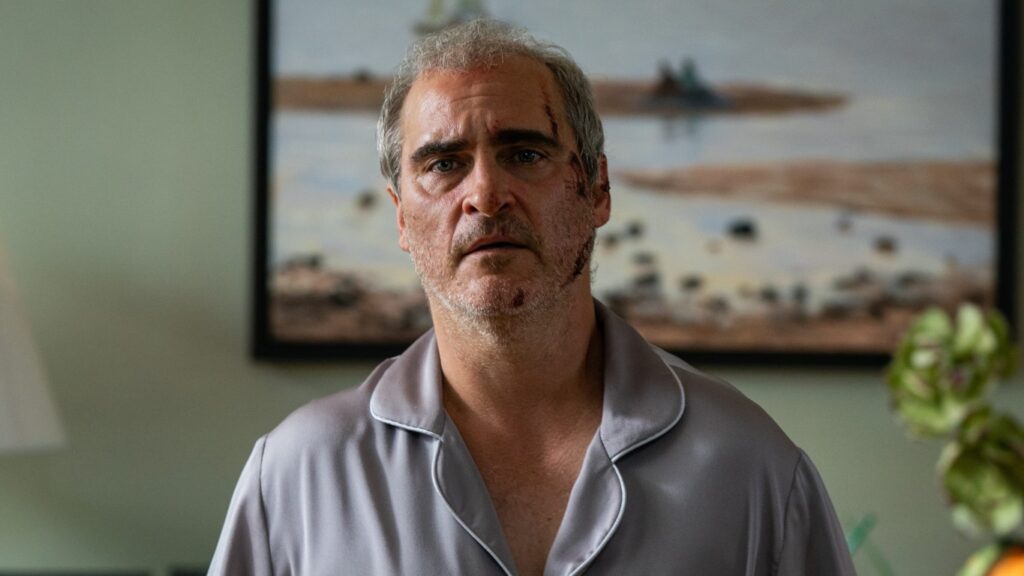
Imagine the elevator pitch Ari Aster had to make to get the green light on Beau is Afraid. Do you go simple, like “A mentally ill man goes on a bizarre road trip after his mother dies”? Or do you hold the executive you’re pitching to captive until you explain every baffling thing that happens in the movie? Joaquin Phoenix, in full shlub mode, is at the center of the most deliriously weird movie of the year, as a middle-aged, deeply anxious mama’s boy who finds himself in one horrifying situation after another while trying to get to his mother’s funeral. Phoenix is as good as ever, but it’s Patti LuPone who dominates the film in a fearsome performance as the titular Beau’s mother, who manages to control him from even beyond the grave. [GR]
The Boy and the Heron
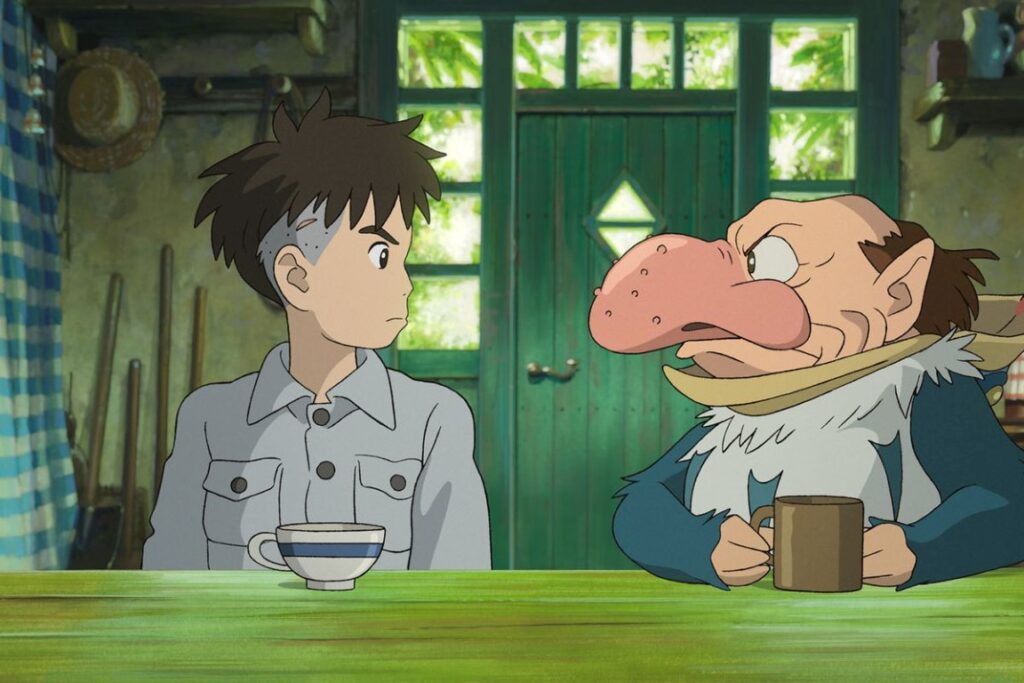
After more than a decade away from filmmaking (ostensibly “retired” after The Wind Rises), animation titan Hayao Miyazaki returns with another fantastical, personal rumination on the ways World War II broke a generation of Japanese youth, and the literal and metaphorical trials by fire required to move past that loss. For its first hour, The Boy and the Heron feels positively grounded, as young Mahito moves to the country to be pushed into a new family dynamic after his mother dies in an air raid in Tokyo. But as his search for completeness sends him into a lush, vibrant realm of anthropomorphic birds and floating souls, Miyazaki presents him (and the audience) with a series of lies we have to sort through. When given the chance to lord over a lush fantasy land made for you, or making the painful but tangible choice to rebuild your life after tragedy, what do you choose? [CW]
Eileen
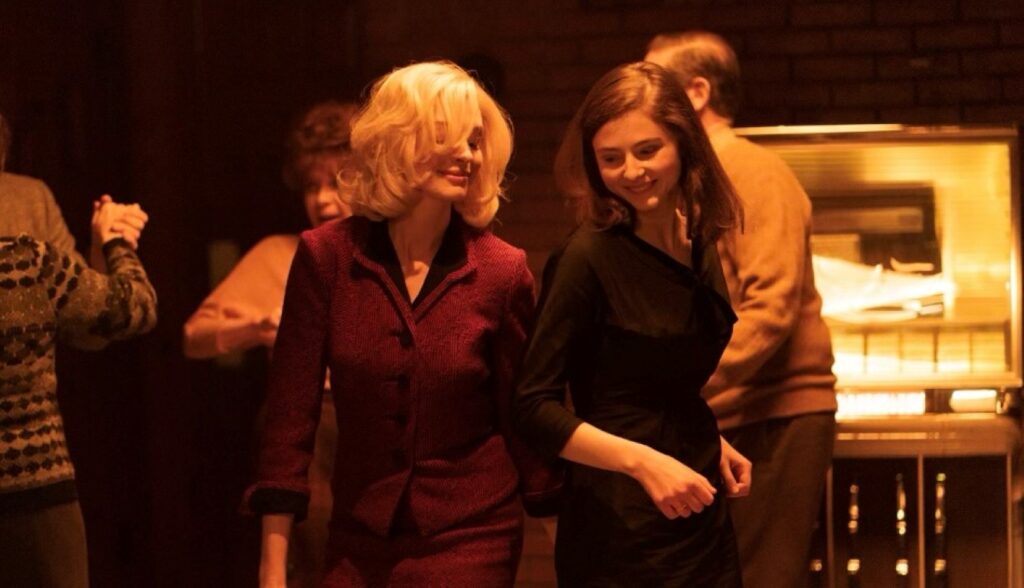
There’s something undeniably exhilarating about watching a performer you already love find another gear to their talents. Eileen provides such a rush watching Thomasin McKenzie become the titular protagonist in all her unpleasant and off-putting glory. A roiling storm behind an almost entirely flat affect, McKenzie busts out of the soulful survivors that have previously defined her strong career. Things get even better when the character runs headlong into Anne Hathaway’s Rebecca, a new counselor at the prison where Eileen works. A burst of temperature and color in Eileen’s grey New England world, the viewer feels the pull of seduction, too, if not as strongly. Rebecca, however, is just throwing off heat. Hathaway’s striking performance makes it clear that the counselor is frigid steel just past the platinum hair and tailored clothes. Watching these women literally and figuratively dance with each other towards their hidden agendas—Rebecca won’t share hers and Eileen might not even be aware of hers—is as intense as any thriller in theatres this year. [TS]
Fair Play
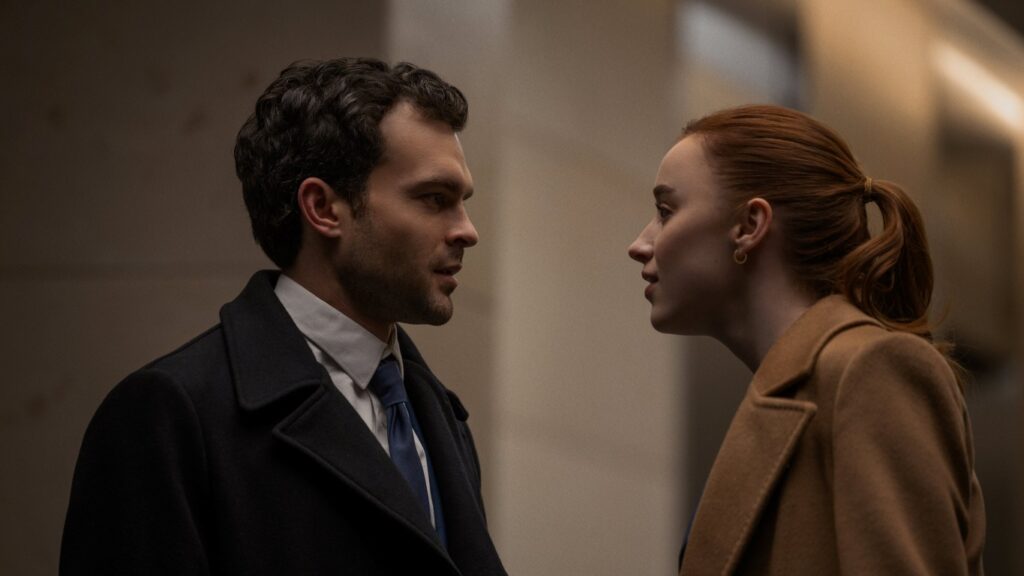
As directed by Chloe Domont and shot by Menno Mans, Fair Play boasts a sickening slick sheen that tells you all you need to know about its corporate setting in the first few images. Trapped and infected by their surroundings, Emily (Phoebe Dynevor) and Luke (Alden Ehrenreich) move from secret lovers to status-jealous colleagues and, finally, erotic thriller antagonists. Ehrenreich finds the right combination of lust, envy, and shameless self-flagellation to bring Luke to pathetic life. Thirty years ago, he might have been the sort of guy folks might swoon over his progressive attitudes towards the women he supervises, but certainly not anymore. However, the real kick of the film is Dynevor. Every emotion she feels, every reaction she gets becomes a tool to her, a means of real and corporate survival. Watching her duck, dodge, and think on her feet is arresting. [TS]
The Holdovers
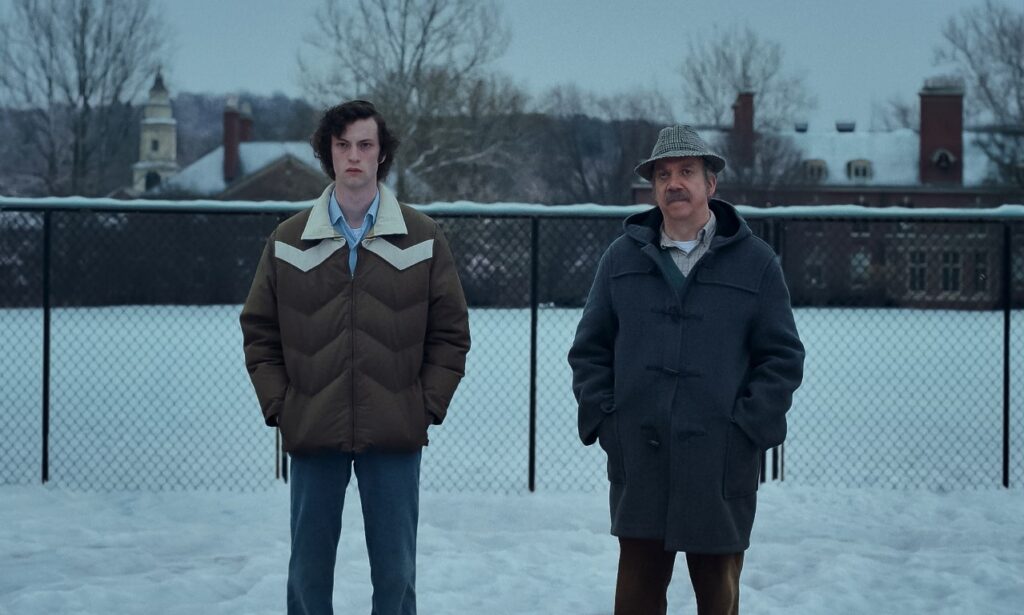
With aesthetics and themes ripped right out of the 1970s (Hal Ashby would nod in sage acknowledgement), Alexander Payne’s The Holdovers feels a perfectly acidic balm to the treacly sentiments of the holiday season. Where most people get to spend Christmas with family, The Holdovers saddles us with three sadsacks — Paul Giamatti’s martinet Professor Paul Hunham, Da’Vine Joy Randolph’s grieving lunch lady, and Dominic Sessa’s bitter, rebellious child of divorce — forced together by circumstance in the cavernous New England boarding school they solely occupy. And yet, there’s not a whiff of cynicism about these brash, unpredictable characters, as their tension softens and the misfits form an erstwhile family, even if just over the holidays. It’s a funny, warmhearted film that isn’t afraid to take jabs at its characters and remind us that family is often as simple as the people around you. [CW]
The Iron Claw
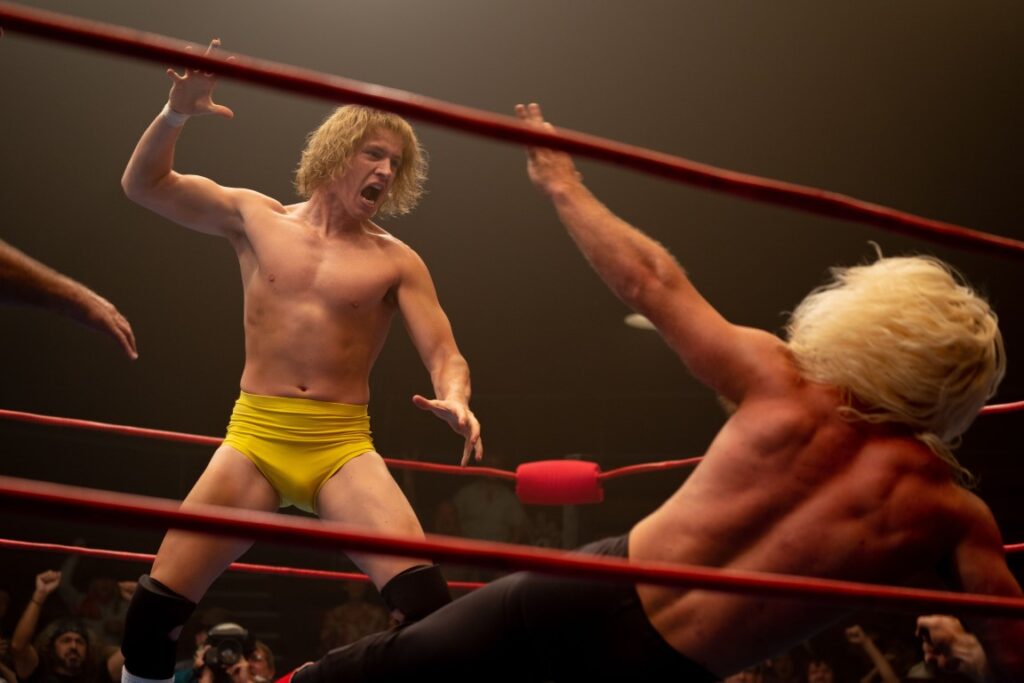
There must be a tremendous temptation to go over the top when making a film about wrestling. If your movie revolves around the Von Erich family and their supposed curse, that has to go double. Impressively, writer-director Sean Durkin resists that temptation, creating a film that aches with familial love and potential left unrealized. The moments where spectacle does assert itself, as with Aaron Dean Eisenberg’s wonderfully scuzzy depiction of Ric Flair, therefore make a far bigger impact, like an invading foreign body. Zac Efron bulked up so intensely to play second-born brother Kevin, his skin always seems on the edge of tearing open, too weak to contain all that muscle. Yet, there is no discomfort in his performance. In arguably the first mature role of his career, Efron is wonderfully sincere and open. The effort gives The Iron Claw a center that makes the film worth bearing witness to, even as the tragedies pile ever higher. [TS]
The Killer
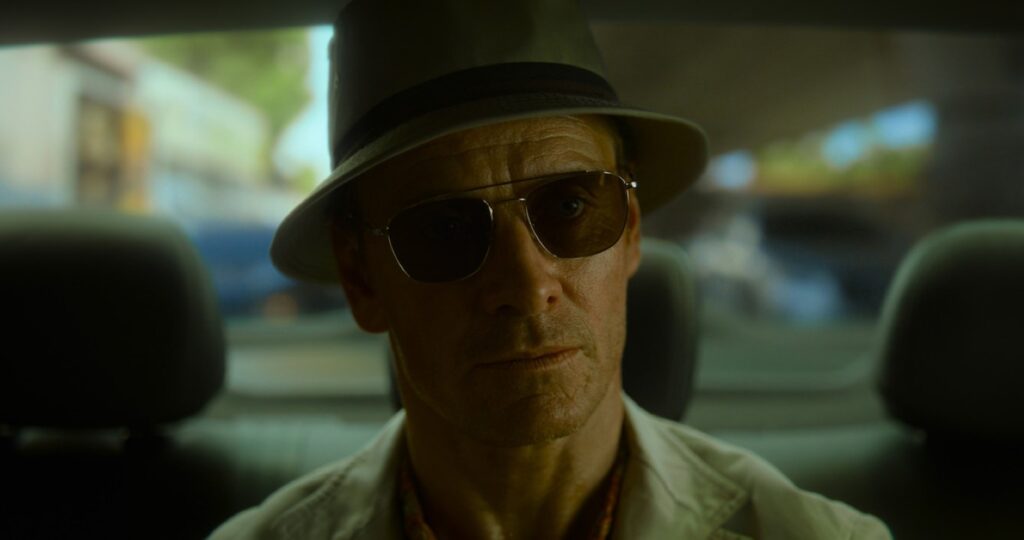
David Fincher’s fastidiousness is no secret to anyone who follows his work: He’s a man of exacting detail, almost to the point of parody. And yet, that’s kinda what he does in The Killer, an adaptation of a French comic book in which an unnamed assassin (Michael Fassbender) takes revenge on the people who harm his girlfriend after a botched job. But the devil, as always with Finch, is in the details: The tongue-in-cheek name scheme for his aliases, the way Fassbender’s self-serious, philosophical voiceover clashes with the clumsiness we see on screen, the little hints at modern capitalism’s ability to help and hinder his efforts. It seems here that Fincher recognizes his detail-oriented mania, and is more than willing to take a few healthy jabs at it, resulting in one of the most darkly funny films of his career. [CW]
Killers of the Flower Moon
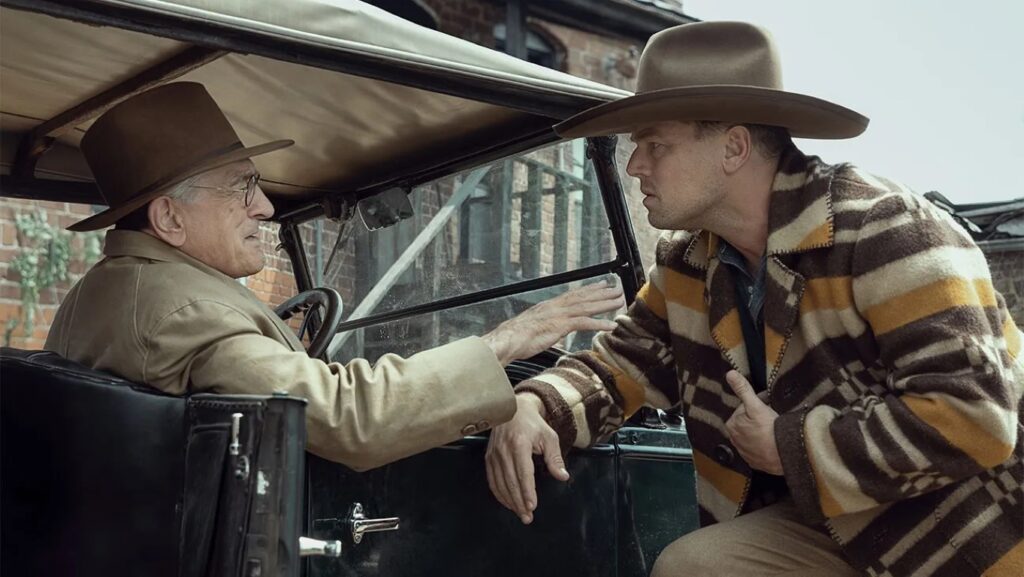
“Can you spot the wolves in this picture?” Martin Scorsese, ever the chronicler of America’s lifelong relationship with criminality, turns his eye to David Green’s nonfiction chronicle of the systemic massacre of the Osage people at the turn of the 20th century. Rather than a whodunit, though, Scorsese and co-writer Eric Roth warp the story into a “whydunit?” turning the focus away from Jesse Plemons’ no-nonsense FBI agent to Leonardo DiCaprio’s venal Ernest Burkhart, perhaps the most pathetic Scorsese protagonist in many a moon. The film instead becomes a Goodfellas by way of the Western, a close-eyed peek at the moral failings and contradictions of bad men who do horrible things and never stop to question why they’re doing them. It’s a perspective that, by its nature, tends to decenter the Native people impacted by these deeds; Lily Gladstone nonetheless speaks volumes as Mollie Burkhart, a woman carrying the weight of the Osage on her shawl-covered shoulders. Scorsese’s aware of his privilege and tells the story the only way he can: giving as much air to the Osage as he dares, without daring to speak for them. [CW]
May December
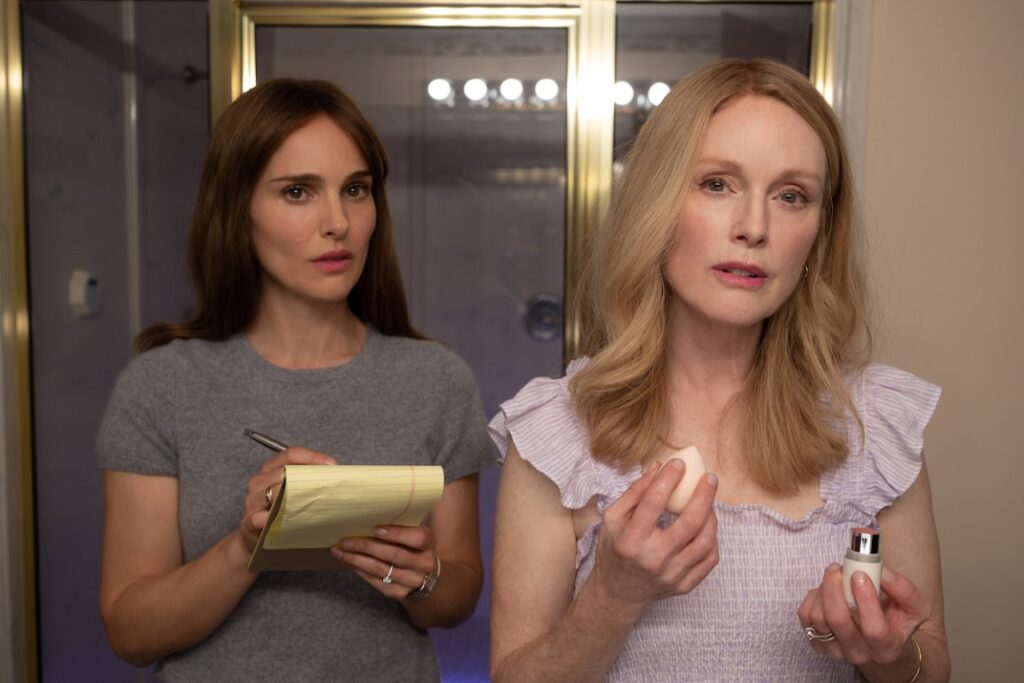
Seemingly daring the discourse mob to come directly for him, Todd Haynes directed a darkly funny, uncomfortable drama inspired by the late Mary Kay Letourneau, who committed statutory rape with her 12-year-old student, later marrying and having children with him. Julianne Moore plays the fictionalized version of Letourneau, and Natalie Portman an actress preparing to play her in a film, and together they do an odd, unsettling dance of mutual manipulation and deception, always assuming they have the upper hand on one another. Moore and Portman are as great as always, but it’s Charles Melton as Moore’s victim-turned-spouse who gives a quietly unforgettable performance, simmering with unspoken resentment, guilt, and loneliness as he laments the normal life he never got to experience. [GR]
Nimona
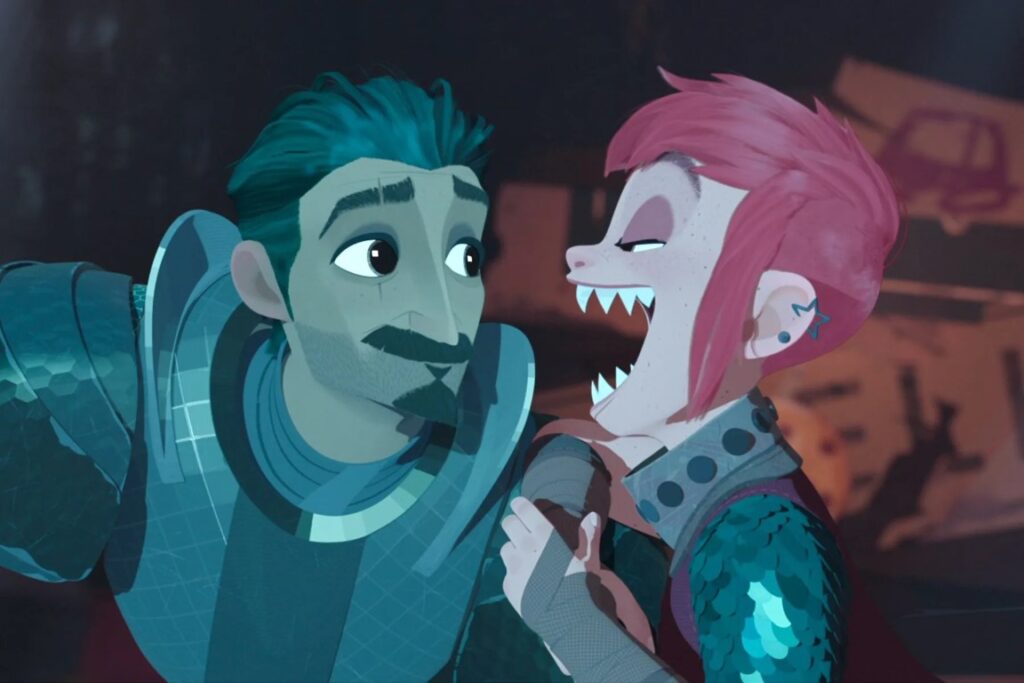
Nimona boasts an animation style that evokes storybook storytelling, with characters looking almost like complex paper dolls against well-rendered computer-animated backgrounds. While neither as inventive nor as pristine as some other animated offerings in 2023, it sneakily earns the viewers love, not unlike the titular shape-shifting supporting protagonist (voiced by Chloë Grace Moretz). The storyline, revolving around conspiracies to maintain a “history is written by the winners” status quo, similarly fosters increased appreciation in the audience as it goes. The relationship between the framed knight Ballister Boldheart (voiced by Riz Ahmed) has the standard “Odd Couple” beats, but they don’t feel clichéd or threadbare as they unfold. There’s genuine heart and joy in their evolving relationship. The film is also gloriously, unapologetically queer, no small feat against the current political backdrop. Finally, it is genuinely funny in a way that family audiences can appreciate without defaulting to those “this one’s for the parents and hopefully the kids won’t ask questions” style jokes. [TS]
Oppenheimer
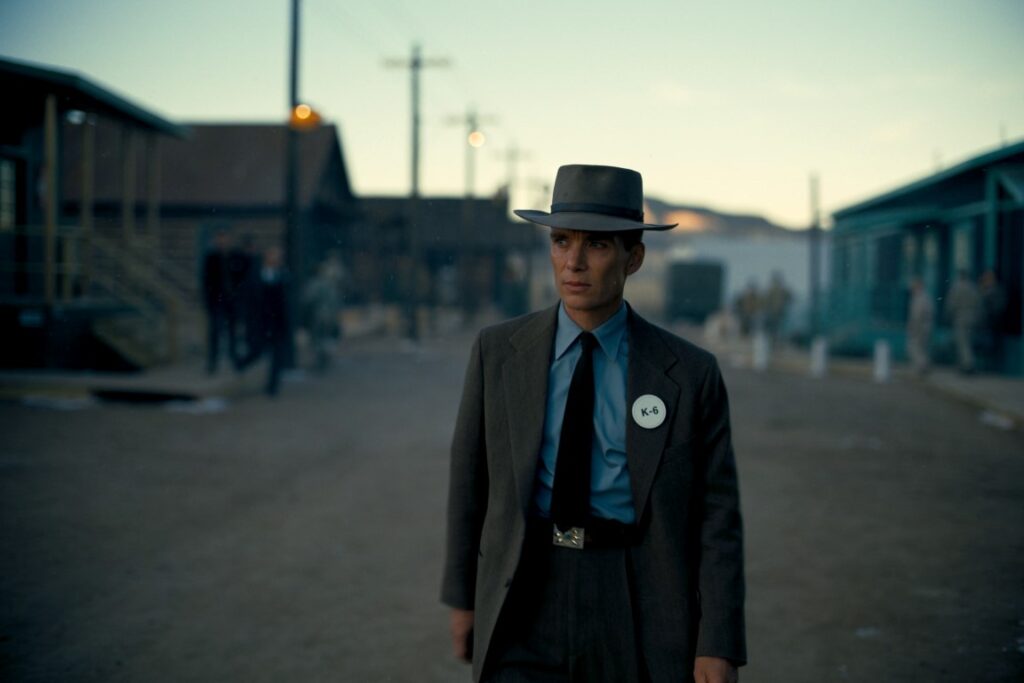
One-half of the biggest cinematic event of 2023, Oppenheimer took somewhat of a backseat to the revelatory joy of Barbie. While understandable, given its more traditional trappings and more time-demanding length, the fragmented biopic also overperformed expectations. It’s easy to understand why once seen. Massive in scale and ambition, a weird heart beats in its chest. What other film could pull off the deepest bench in years of white men character actors knocking the cover off the ball in minor roles and a sex scene in which Oppenheimer (Cillian Murphy) utters what is as close to a catchphrase as the man has, “Now I am become Death, the destroyer of worlds.”? Christopher Nolan may be many things, but he certainly isn’t a filmmaker of half measure. It’s a joy to see him take the most tired of film genres and bring it to life with such eager verve. [TS]
Past Lives

Every year needs its tear-jerking drama, and Celine Song’s Past Lives fits the bill, albeit in a far more subtle way than usual. Childhood friends reconnect as adults, then lose touch and reconnect again more than a decade later, and this time Hae Sung (Teo Yoo) flies all the way from South Korea to visit Nora (Greta Lee), even though Nora is now married to another man. Nothing untoward happens, but it’s what goes unsaid that matters: years of “what if?” as Hae Sung represents to Nora not just her past, but her Korean heritage. Past Lives is restrained, without any passionate sex scenes or even declarations of love, but the ending will leave you sobbing over your own “what if”s, and wondering who will be waiting for you in the next life. [GR]
Poor Things
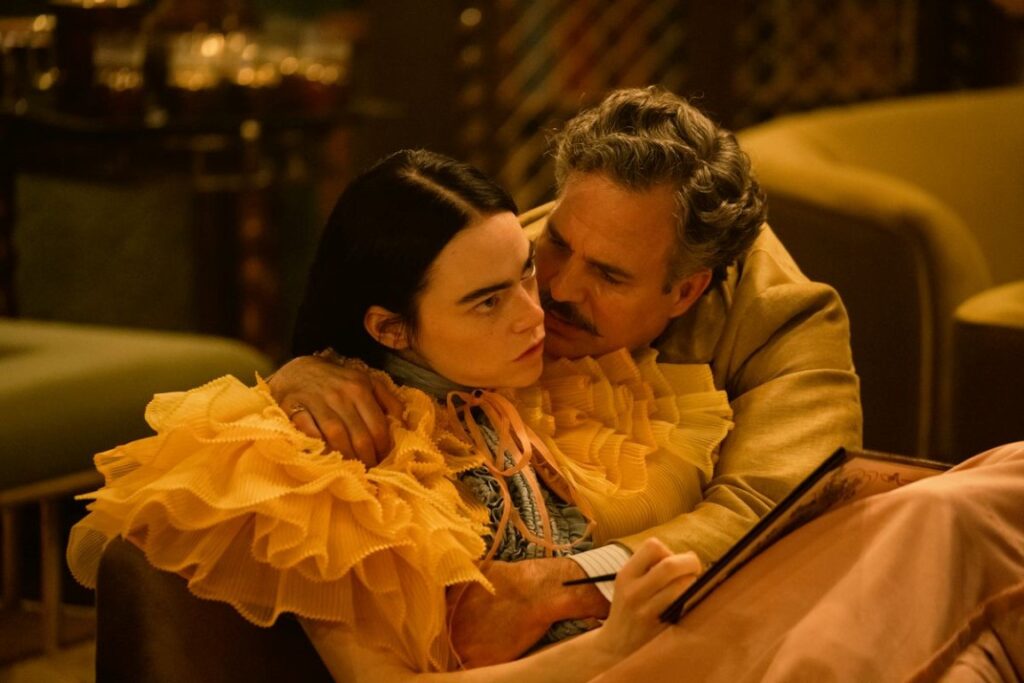
In a year of big swings, there was no bigger one than Yorgos Lanthimos combining Frankenstein with feminism and raw, graphic sexuality. Poor Things, starring Emma Stone and Mark Ruffalo in career-high performances, spar with each other as, respectively, a miracle/monster of Victorian-era science, and her lover, who can’t handle her thirst for knowledge and independence. Skillfully weaving together humor, sex, pathos, and body horror, it’s one of several movies released this year that mark a welcome return of entertainment that’s strictly for adults, and not a minute too soon. [GR]
Priscilla

If you’re looking for a sad, uncomfortable double feature with May December, another movie about a teenager whose youth was taken from them by a predatory adult. In this case, it’s directly based on a true story, that of Priscilla Beaulieu Presley and her marriage to Elvis Presley, whom she met when she was just 14 years old. In this case, though, it’s less about their relationship and more about Priscilla’s lonely existence, confined to Graceland and not permitted to enjoy her life when Elvis is frequently away. Sofia Coppola’s soft-lit, low-key drama perfectly captures the minutiae of young Priscilla’s life, as she tries to find some meaning and purpose to a seemingly enviable but empty existence. [GR]
Saltburn

There’s so much to peel back in writer-director Emerald Fennell’s sophomore effort Saltburn it is challenging to know where to start in this blurb. Inevitably, it must be Barry Keoghan’s performance as Oliver Quick, a Tom Ridley for a new era. While rarely over the top—and gloriously right when he is—Keoghan cracks the bones and drinks down the marrow of this character. In a career full of strange little men characters, his articulation of Quick still stands out for its almost supernatural seductive discomfort. If ever you wanted to know what fearful-avoidant attachment felt like, your relationship as a viewer to Quick will give you a taste. What’s less evident until reflection is how Jacob Elordi’s wounded wealth golden boy Felix Catton does the same, albeit on a very different wavelength. As a result, Fennell’s beautiful and unsettling film vibrates with the kind of sinister energy one can’t help but want to touch. [TS]
Spider-Man: Across the Spider-Verse

This is how to do a sequel to a surprisingly incredible first film! Yes, go bigger, but go deeper, stranger, and more challenging as well. Into the Spider-Verse proved to be the most visually interesting animated film in years, and how it pushed the industry is apparent in improbable successors like Puss in Boots: The Last Wish. Across the Spider-Verse seemingly takes this as a challenge, increasing the scope of its visual palette to reclaim the top of the mountain. Gwen Stacy’s (voiced by Hailee Steinfeld) watercolor world alone demands applause, and the film offers styles like Victorian-inspired paper stop-motion and straight from the ’90s pen of Tom Lyle over-articulation on top of that. Across the Spider-Verse isn’t just a visual trick, though. The more impressive flex is its understanding of the characters, especially the maturing Miles (as voiced by Shameik Moore). It’s a sequel that grows and changes with its protagonists. [TS]
Theater Camp
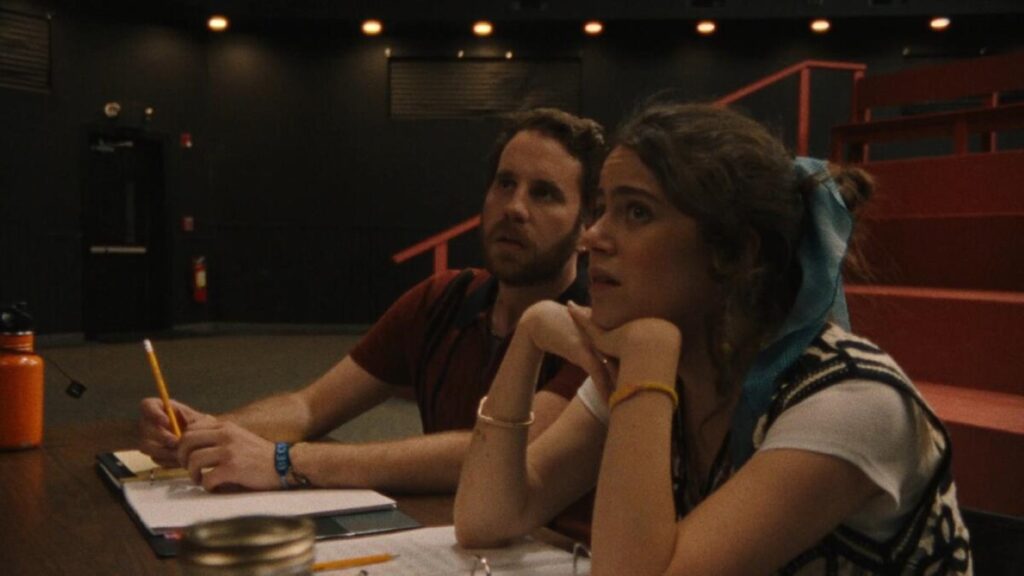
2023’s most delightful comic surprise comes at the hands of theater kids (and lifelong besties) Molly V. Gordon and Ben Platt, who channel their love of hogging the spotlight into this charming mockumentary about a struggling theater camp in upstate New York. Thrown into chaos by their matriarch falling into a coma, the camp falls into disarray thanks to a tech-bro heir (Jimmy Tatro) and the competing ambitions of its two most dedicated counselors (Platt and Gordon). But at the end of the day, the show must go on, and the campers, an adorable ensemble of talented tots, “turn cardboard into gold,” as Noah Galvin’s triple-threat tech guy says. More than the laugh-a-minute gags and breezy improvisational energy, though, the big show at the end — an original musical called Joan, Still — will make you laugh and cry in its final bars. [CW]
They Cloned Tyrone
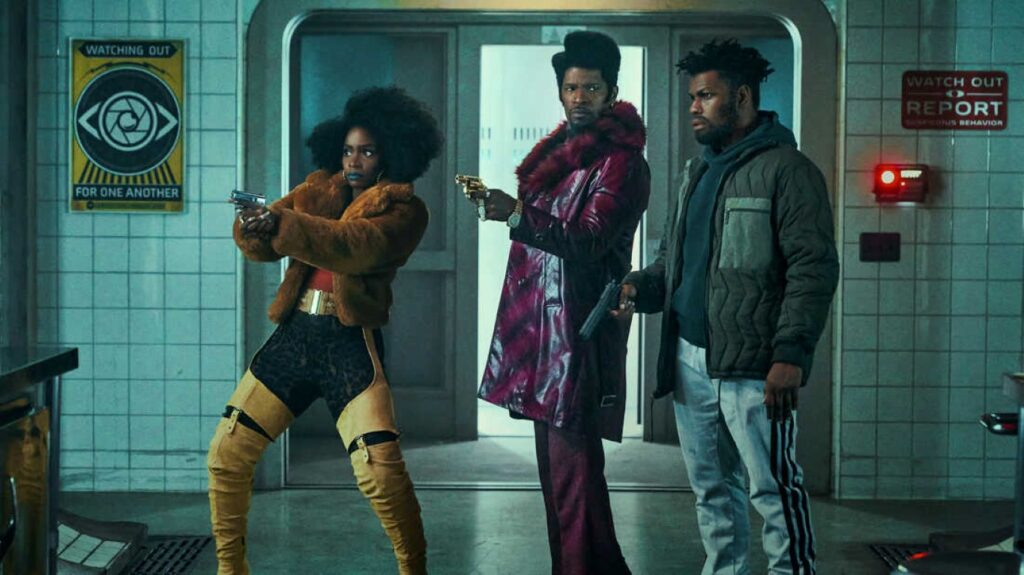
Sadly overlooked this year is Netflix’s They Cloned Tyrone, Juel Taylor’s witty and unique sci-fi/action thriller. John Boyega stars as a drug dealer who discovers that he’s part of an insidious mind-control and cloning experiment out of a secret laboratory, and seeks to bring it to an end. Jamie Foxx and Teyonah Parris co-star, and the three of them play off of each other wonderfully, comically sparring but coming together in the face of a racist, cold-blooded plan to bring “peace” to an increasingly discordant America. In the vein of Sorry to Bother You, They Cloned Tyrone’s weird, unpredictable energy carries it as one of the most inventive films of the year. [GR]
The Zone of Interest

The greatest crime you can commit when an atrocity is happening in front of you is to look away. Jonathan Glazer, returning after more than a decade since Under the Skin, forces us to look at those who wish, more than anything, to avert their gaze. Taking the spirit, if not necessarily the plot, from Martin Amis’ harrowing novel, Glazer’s Zone of Interest is a study in averted gazes, following the everyday rhythms of a German commandant and his family as they set up their dream household just outside Auschwitz. What haunts here is the sound design, folded shirts, and tended gardens interrupted by unpredictable screams and the pop of a pistol. It’s a horror so great that even its jaded, complicit characters can’t ignore for very long. [CW]